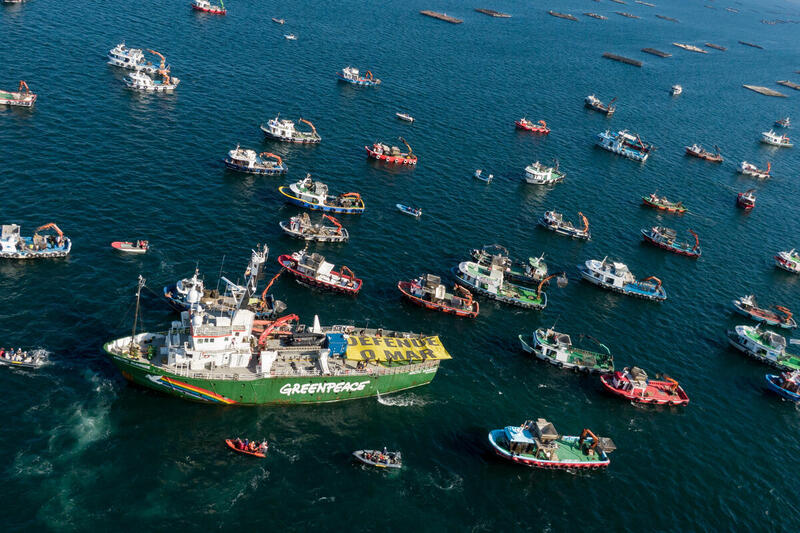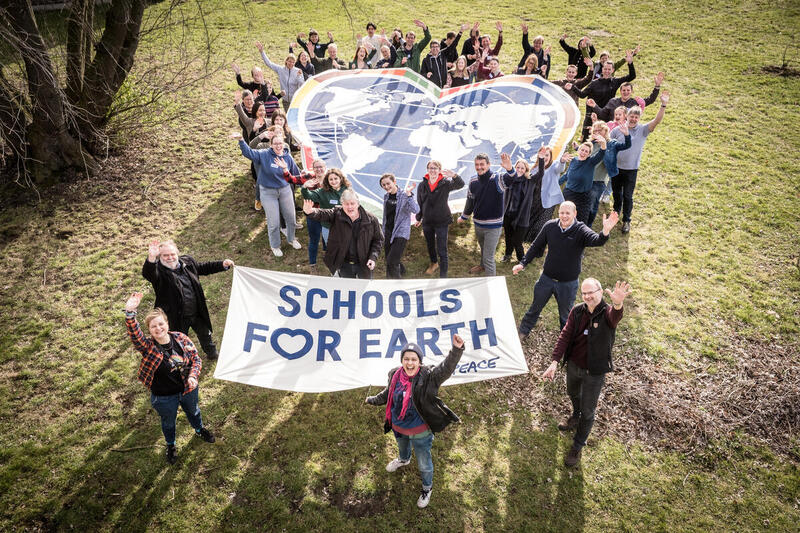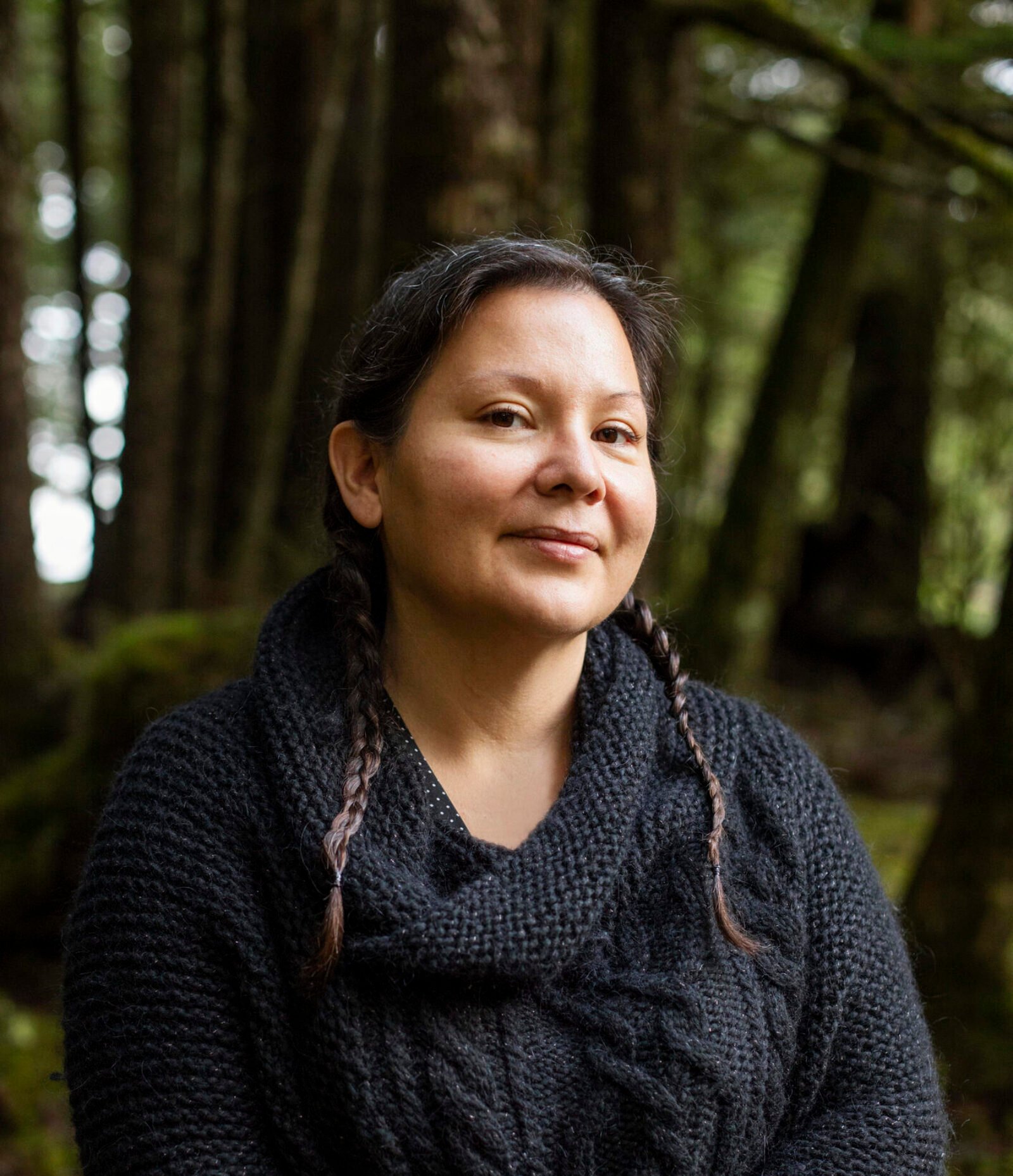Long before “sustainability” was a buzzword, Sandra Elisabeth Brittany lived an eco-friendly lifestyle. She harvested rainwater, reused glass jars, avoided chemicals in her home and garden, and brought her own jute bags to the market. To her family, she was simply ahead of her time.
Her niece, Cathy Mingo, remembers her as “the best kind of person; the best aunt anyone could ask for.”
“When my siblings and I were young, she would teach us how to dye things with wildflowers, identify plants and wildlife, and understand why living in harmony with the natural world was so important. She taught us to respect our planet. Now, all these years later, I cannot look at a tree without really seeing it and all it does for us.”
Sandra left a deep mark on the people in her life. Her influence now lives on through the gift she left in her Will to the Greenpeace Canada Education Fund—an incredible act of generosity that will advance environmental research and education.
Why “People Power” matters more than ever
Gestures like Sandra’s aren’t just nice; they’re critical at a moment when the planet needs bold action.
We are facing an unprecedented crisis of biodiversity loss and climate change. This vulnerability is starkly evident in our oceans: less than 1% of the world’s international waters are sufficiently protected. In these vast, unprotected areas, harmful activities like overfishing, deep-sea mining, and pollution are threatening marine life, disrupting ecosystems, and jeopardizing food security for billions of people.

Greenpeace has long championed this fight. The organization’s first briefing on the need for an ocean treaty was written in 2005. After two decades of tireless campaigning alongside allies, indigenous communities, and supporters, the UN Global Oceans Treaty was ratified in October. This landmark treaty commits world governments to protecting at least 30% of the oceans in sanctuaries by 2030. For over 50 years, Greenpeace Canada has been a major force in defending the oceans, contributing to this victory and pushing corporations to cut single-use plastics.
But Greenpeace doesn’t do it alone.
Greenpeace has always been a grassroots movement. Its work is funded by individual donations, not government grants or corporate sponsorships. That independence is what makes Greenpeace so effective—they’re able to challenge the systems that cause environmental destruction.

“We don’t accept funding from governments or corporations,” explains Jackie Gallagher, Director, Greenpeace Canada Education Fund. “Every piece of research, every investigation, every education campaign is made possible by donors like Sandra—people who care about the planet and trust us to shine a spotlight on the looters and polluters.”
A legacy that powers the future
Every movement needs people, and Greenpeace is no exception. “Our supporters make all the difference,” says Jackie. “Their time as volunteers and their ongoing financial support are critical to our success. They make it possible to plan for the future, decide which projects to take on next and show up where and when we’re needed most.”

Leaving a gift in a Will, as Sandra did, is another powerful way to sustain these efforts long-term. Even a small percentage, after loved ones are cared for, can make a significant impact.
As Jackie puts it, “Sandra’s story is a powerful reminder of the difference one person can make. Her generosity will have a lasting impact.” Legacy gifts enable Greenpeace to continue its vital work: supporting environmental education for youth, reporting on biodiversity loss, advocating for stronger nature laws, and helping implement the Global Ocean Treaty and create the first wave of ocean sanctuaries.
A life of conviction, a powerful legacy
“My aunt was truly an amazing woman,” Cathy reminisces. “She was a committed environmentalist who positively impacted those who knew her, and has left a legacy of like-minded people.”
“She was a quiet yet passionate supporter of Greenpeace and other charities and organizations that championed environmentalism, opposed animal cruelty, and supported those who practiced and taught sustainable practices.”
Sandra never did things for show. She acted on conviction, not applause. In the process, she turned a lifetime of care for the planet into a legacy that continues to fight for the land, wildlife, and oceans that support us all.
Topic: Donor Stories



